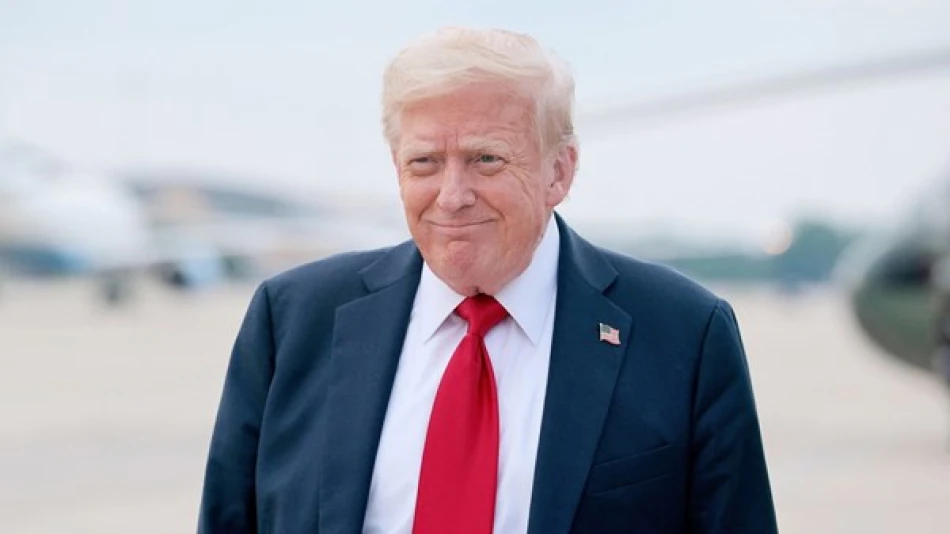
Trump Announces 'Fantastic' Trade Deal with Indonesia, Boosting Economic Ties
Trump Secures Last-Minute Trade Deal with Indonesia, Averting 32% Tariff Threat
President Donald Trump announced Tuesday that he has reached a trade agreement with Indonesia, just weeks before his August 1 deadline that would have triggered punitive 32% tariffs on Indonesian goods. The deal appears to follow Indonesia's July commitment to increase imports of American agricultural products and oil, showcasing Trump's continued use of tariff threats as a negotiating tool in his second term.
A Familiar Playbook Returns
Trump's announcement on Truth Social was characteristically brief but triumphant: "We just reached a wonderful deal for everyone with Indonesia. I negotiated directly with their respected President." While details remain scarce, the agreement represents a clear victory for Trump's transactional approach to international trade, which defined much of his first presidency.
The timing is significant. With less than three weeks remaining before Trump's tariff ultimatum, Indonesia appears to have capitulated to American demands rather than risk a trade war with one of its largest trading partners.
Indonesia's Strategic Capitulation
Indonesia's July 8 pledge to boost imports of U.S. agricultural products and oil was a clear signal that Jakarta was taking Trump's tariff threats seriously. The Southeast Asian nation, with its $1.4 trillion economy and 270 million consumers, represents a crucial market for American exporters.
This preemptive move mirrors strategies employed by other nations during Trump's first term, when countries like Mexico and Canada renegotiated NAFTA under similar pressure, and China eventually signed the Phase One trade deal after enduring escalating tariffs.
Market Implications and Investor Outlook
For American agricultural exporters and oil companies, the deal likely opens new revenue streams in one of Asia's fastest-growing economies. Indonesia's commitment to increase imports could particularly benefit U.S. soybean, corn, and wheat producers, as well as energy companies looking to expand their Asian footprint.
The agreement also signals to other trading partners that Trump's tariff threats should be taken seriously. Countries like Vietnam, Thailand, and Malaysia—which have significant trade surpluses with the U.S.—may now face increased pressure to negotiate similar deals or risk punitive measures.
A Broader Trade Strategy Emerges
This Indonesia deal fits into Trump's broader "America First" trade agenda, which prioritizes bilateral agreements over multilateral frameworks. Unlike his predecessor's approach of working through international organizations, Trump continues to leverage America's market size and economic power for direct, country-to-country negotiations.
The success with Indonesia may embolden Trump to apply similar pressure tactics elsewhere, particularly with trading partners that maintain significant surpluses with the United States. This approach, while controversial, has proven effective in securing concrete commitments from foreign governments.
For Indonesia, avoiding the 32% tariff threat was likely worth the commitment to increase American imports, especially given the potential damage such measures could inflict on its export-dependent economy. The deal represents a pragmatic recognition that accommodation, rather than confrontation, offers the best path forward in trade relations with the Trump administration.
Most Viewed News

 Layla Al Mansoori
Layla Al Mansoori






